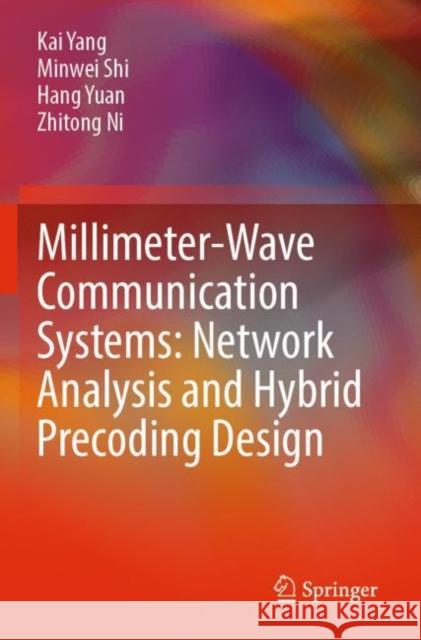Millimeter-Wave Communication Systems: Network Analysis and Hybrid Precoding Design » książka
Millimeter-Wave Communication Systems: Network Analysis and Hybrid Precoding Design
ISBN-13: 9789811696237 / Angielski / Miękka / 2023 / 176 str.
Millimeter-Wave Communication Systems: Network Analysis and Hybrid Precoding Design
ISBN-13: 9789811696237 / Angielski / Miękka / 2023 / 176 str.
(netto: 499,55 VAT: 5%)
Najniższa cena z 30 dni: 501,19
ok. 16-18 dni roboczych.
Darmowa dostawa!
This book investigates the analytical framework and hybrid precoding scheme in millimeter-wave networks. Millimeter-wave communication is a frontier technology for supporting ultra-high data rate transmissions in future wireless networks due to larger bandwidth and higher spectral efficiency. However, the involved interference characterization and increased energy consumption are two dominant limitations in millimeter-wave network evolution. In this monograph, we develop a unified analytical framework for large-scale millimeter-wave communication networks, which leads to abundant network design insights and guidelines. Under this framework, we design low-complexity hybrid precoding algorithms for millimeter-wave systems, which greatly reduce energy consumption without obvious performance degradation.We would like to highlight that we develop a unified analytical framework and low-complexity hybrid precoding mechanisms for millimeter-wave communication networks, where a variety of millimeter-wave properties and hardware constraints are incorporated. The developed mechanisms can provide abundant insights and guidelines for the hybrid precoding design and analysis in millimeter-wave communication networks. Graduate students, researchers, and engineers in the field of communication networks can benefit from the book.
This book investigates the analytical framework and hybrid precoding scheme in millimeter-wave networks. Millimeter-wave communication is a frontier technology for supporting ultra-high data rate transmissions in future wireless networks due to larger bandwidth and higher spectral efficiency. However, the involved interference characterization and increased energy consumption are two dominant limitations in millimeter-wave network evolution. In this monograph, we develop a unified analytical framework for large-scale millimeter-wave communication networks, which leads to abundant network design insights and guidelines. Under this framework, we design low-complexity hybrid precoding algorithms for millimeter-wave systems, which greatly reduce energy consumption without obvious performance degradation.We would like to highlight that we develop a unified analytical framework and low-complexity hybrid precoding mechanisms for millimeter-wave communication networks, where a variety of millimeter-wave properties and hardware constraints are incorporated. The developed mechanisms can provide abundant insights and guidelines for the hybrid precoding design and analysis in millimeter-wave communication networks. Graduate students, researchers, and engineers in the field of communication networks can benefit from the book.











